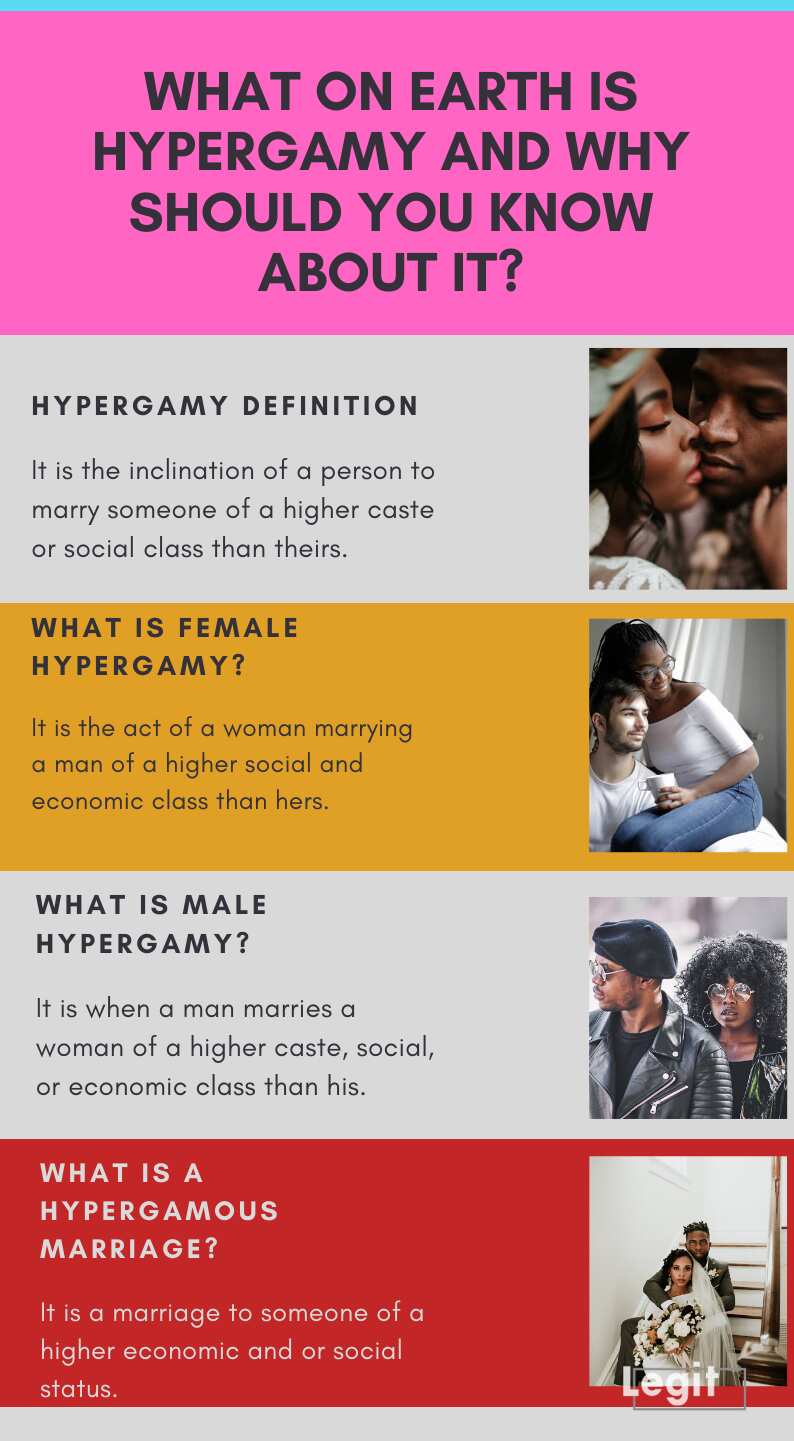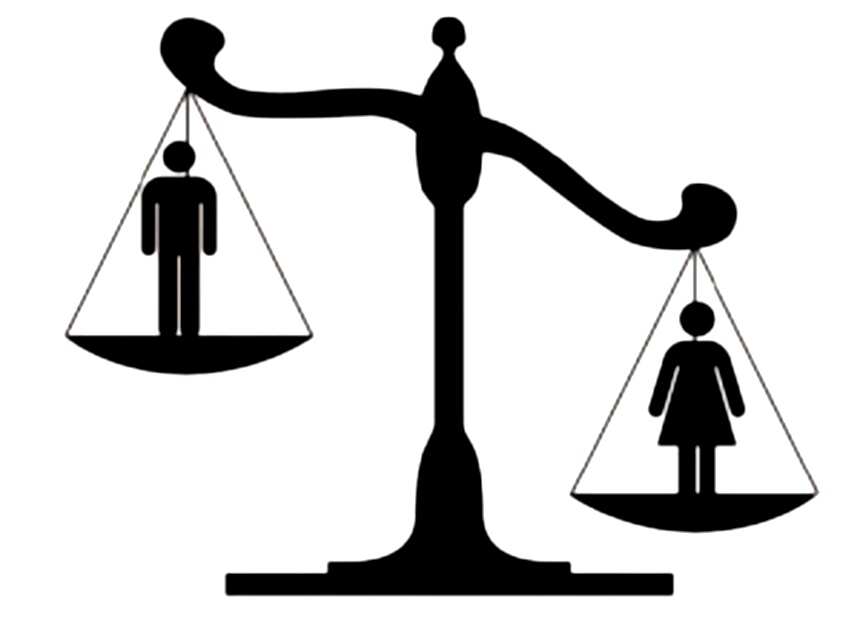What on earth is hypergamy and why should you know about it?
Hypergamy is a social science term used to represent the action of marrying a spouse of a superior caste or social status. It is popularly known as marrying up. It is the tendency to fawn upon and look for partners of a more senior class, status, or even more income.

This type of marriage enables the partner who marries up to raise his or her position in society. For most cultures, this has been a custom for many years. The partner marrying up has more advantages because most family necessities are taken care of by the other partner.
However, in modern marriages, the act of getting married to a partner of a higher social or economic class has lost its meaning because the trend is no longer observed. But what is the hypergamy meaning?
Hypergamy definition
What is hypergamy? Many sources define hypergamy as the inclination of a person to marry someone of higher caste or social class than theirs.

Read also
What is enmeshment in a relationship and how does one deal with it?
Merriam-Webster dictionary defines hypergamy as marriage into an equal or higher caste or social group. Marrying up does not require the partner to be older or younger, only of higher status.
Both female and male hypergamy exist, but the female version is the most common.
What is female hypergamy?
It refers to a woman's desire to marry someone of a higher economic, social, or educational status than hers.
Female hypergamy can also be described as a female's desire to marry the best man she can find.
This definition is based on several factors, such as education and wealth, among others. In the case of education, most ladies tend to marry more educated men. This is called educational hypergamy.
Ladies marrying men with lower educational achievements than them is described as educational hypogamy.

For the 21st century woman, wealth is not the only thing she considers when choosing her male partner. Here are other attributes she looks for:

Read also
The beta male - definition, traits, and personality
- Ambition and passion: Why do most ladies love musicians and entrepreneurs? This is because musicians are so passionate while entrepreneurs are so focused.
- Humorous: Men who can make ladies laugh and have fun are more desirable.
- Initiative: Most females love being associated with leaders. They want to feel protected by a man who is not afraid to get them what they want.
- Decency: What else makes a person more appealing than decency?
- A good listener: Most people talk too much and forget to listen to others. Ladies want someone to lend them an ear and respond to their opinions.
- Empathetic and kind: Many ladies prefer empathetic spouses.
Many social observers believed that the gender revolution that began in the mid 20th century would bring about the complete end of hypergamy. With women earning their own paychecks and running their own bank accounts; choosing a partner would no longer be based on how much money he has.

Read also
How is courting different from regular dating? Find out now
Twenty-first-century women have been able to successfully prepare themselves to be their own man. They now have more education than men. They have joined the labour force in massive numbers.
Despite all these facts, female hypergamy still remains. Studies have shown that it is still prevalent among women.
Some studies showed that even high-earning and highly educated women still prefer a man above their pay grade.
Demographer and researcher Yue Qian compared couples in the 1980 Census and in 2012 American Community Survey. She found that during the intervening decades, though wives became more likely to marry down in terms of educational achievement, “the tendency for women to marry men with higher incomes than themselves persisted.”
However, the tendency for women to marry men with higher incomes than themselves still persisted. In fact, women with the same or more education than their husbands were more likely to marry up.

Read also
Platonic relationship: A guide into the meaning of the notion
Female hypergamy is not something that will just disappear from society. For many centuries, women in almost every culture in the world were unable to earn a livelihood for themselves.
They were relegated to staying at home, cooking, and taking care of their children and husbands. Marriage was the only way a woman determined her status in life.
Also, the idea of a woman finding a man of higher social or economic status to marry was promoted by parents. Since female children were not allowed to work, parents wanted their daughters to marry a man who would take care of their daughters and extend the goodwill to them too.
Almost all through much of human history, husbands determine families' economic and social status. Hypergamy, which is often described as the tendency of a woman to try to marry into wealth became, in part, a natural response to this dependency.
Also, one of the reasons female hypergamy is still prevalent is likely because women, being the ones who bear and nurse the children, will continue to prefer men who earn more than they do. Or, at least as much as they do.

Read also
Top feminist quotes that will empower and inspire you
What is male hypergamy?
It is the male version of female hypergamy. It is when a man marries a woman of a higher caste, social, or economic class.

Hypergamous definition
How can you define hypergamous? Hypergamous meaning is 'marrying up'.
What is hypergamous marriage?
It is a marriage to a partner of higher social status. Marrying a wealthy spouse of higher social status is not a new phenomenon, it began many centuries ago, and it is perhaps as old as human history.
Advantages of hypergamy marriage
This type of marriage has benefits for both partners.
To the husband:
- He benefits from the high financial status of the lady he marries.
To the wife:
- She takes having a partner of a higher economic status than her as an achievement.

Does this mean that the partner marrying up is generally a gold digger? The answer to this question is no. Hypergamy cannot be likened to gold-digging because there is a mutual benefit for both partners.

Read also
Top 9 examples of gender inequality in the society and their causes
Hypergamy quotes
Here are some hypergamy quotes:
- When women work outside the home and share breadwinning duties, couples are more likely to stay together. In fact, the risk of divorce reduces by about half when a wife earns half the income and a husband does half the housework. -Sheryl Sandberg,
- I don't believe in marrying up, neither do I believe in hypogamy. What I do believe in is the power that sensual feminine women possess. I believe in their God-given ability to stimulate the energy of success, achievement, and wealth in their relationships. I believe that a woman's sensuality makes the best of a man. - Lebo Grand
- I do not consider myself a gold digger. I prefer the term “wallet lightener.” I am much too pretty to be doing any digging
- Quit calling women gold diggers when you do not have any money.
- When I said you could not buy my love, I meant with your salary.
- You can marry more money in five minutes than you can make in a lifetime.
- Life is too short to be with a stingy man.

Read also
Top 10 reasons why men cheat will blow your mind
What is hypergamy and hypogamy?
While hypergamy is the act of marrying up, hypogamy is the act of marrying someone of a lower class than your own.
The male gender is often the one who marries down at most times. Most men do not mind marrying down, as the "breadwinner" idea is largely ingrained in males by society as they grow up.
Furthermore, a lot of men like the idea of power and control which often influences their marriage choice.
What do you think of hypergamy? Do you prefer it to hypogamy?
Source: Legit.ng
ncG1vNJzZmivp6x7rbHGoqtnppdkfnR%2FlnJucGWnna61ecSaqa2gXZ3GsbHRoJimsV6dwa64